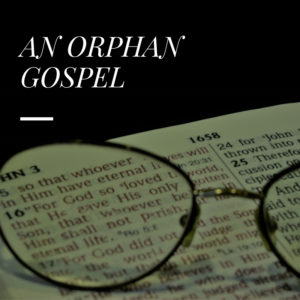 The gospel preached today is often a man-centered gospel.
The gospel preached today is often a man-centered gospel.“Are you lonely? Do you feel afraid? Do you feel ashamed? Are you hurting and broken? Jesus came to meet your needs. God loves you as you are and has a great plan for your life. Jesus died on the cross to give you abundant life. Come to Jesus today and live.”
Much missional preaching today identifies needs and proclaims Christ as a need fulfiller. It is a man-centered gospel, but the apostolic gospel was God-centered.
What are the characteristics of missional preaching in Acts?
We have only three evangelistic sermons in the book of Acts (Acts 2:14-36, 13:16-41, 17:22-31). What we have are short transcripts of fuller sermons since the longest of these sermons would only take about 3 minutes to speak. These are summaries of the missional messages preached by the Apostles. I assume that if Luke is summarizing a message, he would highlight the essential elements in that message for his readers. Thus, these sermons can help us identify the critical components of apostolic preaching.
Two features stand out in two of the three sermons. Paul’s message at Mars Hill in Athens is the outlier (Acts 17:22-31). I will say more about that sermon in a minute. Two other sermons in Acts are apologetic messages given under threat of death (7:2-50, 14:15-17), but they also exhibit similar features. The first striking feature is that the gospel is set in the context of what we would call Old Testament history or Israelite history. Large segments of each sermon summary focus on biblical history.
The second significant feature is that the gospel proclaims that Christ’s death, burial, and resurrection are the single decisive act of God in human history. The good news is that God has made a way for all humanity to join Him in His kingdom. The good news comes with a warning label. Join God in what He is doing or suffer the consequences. (see William Barclay, “A Comparison of Paul’s Missionary Preaching and Preaching to the Church,” Gasque and Martin eds. Apostolic History and the Gospel, 165-175).
The gospel is the culmination of history.
Some will argue that such an emphasis in apostolic missional preaching is because the audience was Jewish. The argument is true in Peter’s sermon at Pentecost (2:14-36) and partially true in Paul’s message at Pisidian Antioch (13:16-41). However, the same gospel message resonated with the Gentiles too (13:44, 48). Nearly the “whole city” turned out to hear Paul’s message. God wired all humans with a desire to be part of a cause bigger than ourselves. Gospel preaching should stimulate that inner longing in us.
At first glance, Paul’s sermon in Athens seems to break the pattern. However, Paul spends most of his message summarizing the spiritual history of mankind (17:22-29) before explaining God’s break into human history. “God is now declaring to men that all people should repent” because God has appointed Christ as the judge “by raising Him from the dead (17:30-31”). Here the gospel is the culmination of the history of the human soul, not just the history of Israel. History, both sacred and secular, is the story of God. The gospel is ultimately “the gospel of God” which Jesus came into this world to preach (Mark 1:14). It is the decisive act of God in human history (Gal. 4:4).
The Empty Coat or the Missing Middle
Why did Jesus come preaching the gospel of the kingdom (Mark 1:15)? What was the ministry of Jesus all about? N.T. Wright talks about the “empty cloak” or the “missing middle” to explain much missional preaching today (How God Became King: The Forgotten Story of the Gospels, 4-5). If we boil down the gospel to the beginning (birth) and end (atonement) of Jesus’ life, then what was the middle all about? It is as if the gospel is a coat without a body.
The four gospels tell the story of how God became king on earth as in heaven (Wright, 34). A gospel disconnected from the plan of God for human history is an orphan gospel. The missional preachers in Acts labored to show that Jesus was the fulfillment of God’s plan to send His ruler into this world (2:23, 33-35, 13:32-34, 17:31). Paul was still preaching the kingdom of God at the end of Acts (28:31).
Why?
Why the apostolic emphasis on the history of God as the foundation for the gospel? Because the gospel is not about us. It is about Him. The gospel is not about God meeting our needs. It is about God making a way for us to join Him in His kingdom. God’s kingdom plan gives birth to the gospel – the good news that God invites us to join His kingdom. Missional preaching in Acts was about the Lordship of Christ as Peter made plain in the very first sermon. Peter concluded his missional message with the words “know for certain that God has made Him both Lord and Christ – this Jesus whom you crucified” (2:36).
A man-centered gospel instead of a God-centered gospel twists the good news. It orphans the gospel. The gospel is born through the plan of God to establish His holy kingdom on earth. Without the kingdom plan of God, the gospel becomes an orphan, malleable to the needs of humanity. The gospel is no longer about God, but about me. No wonder that we see so much consumer Christianity in our churches. God exists to meet my needs because my needs are the reason He died according to much preaching today.
An orphan gospel is all about me!


